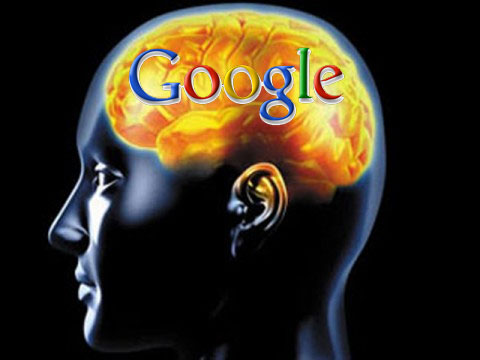'Google effect'
Is our trust in the Internet making us more stupid?
When was the last time you forgot something and did not go to Google or a search engine to find the answer? If you are me, you may have used Google several times today. We all know that with one click, any information can be found in seconds and because we spend a lot of time using computers and smartphones, this information is available anytime. I want to.

But does our trust in search engines make us remember poor information? This is the question that psychologists are trying to answer. According to publications published in Science , psychologists say that people have long regarded the Internet as a personal information bank, a phenomenon called ' Google Effect '.
This conclusion is based on a series of 4 different experiments conducted by Betsy Sparrow and colleagues at Columbia University. Four years ago, psychologist Betsy Sparrow turned to her husband after searching for some movie news online and asked: ' What did we do before the Internet? '. Later, Sparrow began to study how Google, and all the information it gave, changed how people thought.
In his experiment, Sparrow and his colleagues checked how people remember information. As a result, when the information is stored somewhere accessible, for example, on the Internet, easily searchable, they tend to remember where they found it rather than the information itself. believe that . On the other hand, difficult to access information online is easier to remember.
Does this mean the web is making us more stupid? Certainly not, she thinks that our brain is simply adapting to the current environment , that we are living in the Internet world.
- Special Google products and services
- How has Google changed our brains?
- How does Google Maps work?
- Happy 18th birthday of Google
- 11 facts about Google
- How to see the Moon, Mars with Google Maps
- Google changed Doodle surprise rotation for birthday
- Google's patent-pending airflow ventilator
- Discover interesting psychological effects
- 10 very interesting facts about Google
- Instructions for using Google Assistant Vietnamese
- New Google Mini Model from Google
 'Fine laughs' - Scary and painful torture in ancient times
'Fine laughs' - Scary and painful torture in ancient times The sequence of numbers 142857 of the Egyptian pyramids is known as the strangest number in the world - Why?
The sequence of numbers 142857 of the Egyptian pyramids is known as the strangest number in the world - Why? History of the iron
History of the iron What is alum?
What is alum?